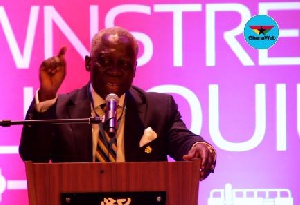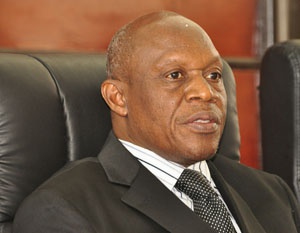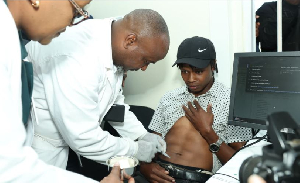The Senior Minister, Mr. Yaw Osafo-Maafo, has said aid to the country has been on a declining trend – reducing almost by half to 2.9 percent of the Gross Domestic Product (GDP) in 2017 from 5.6 percent in 2010, while rejecting its dependability for development.
He said the grant component of aid reduced to 2.3 percent of GDP in 2017 from 3.7 percent of GDP in 2010.
However, he said “Although the percentage of aid may be dwindling, its contribution to some ministries remains key”. He alluded that government pays capital expenditure, salaries and other statutory payments, but aid is crucial for operational expenses.
He said, for instance, that a lot of activities by some ministries like the Gender Ministry, Ministry of Education, Ministry of Health among others are funded by aid.
Aid comes in the form of grants, concessional loans; 35 percent or more of loans being grant and often with interest below market rate, or technical assistance.
The minister said the pursuit to ensure that things can be done differently while making the most of the country’s resources to finance development is the central theme of the vision for Ghana Beyond Aid.
Mr. Osafo-Maafo, who was presenting a draft copy of the ‘Ghana Beyond Aid Charter and Strategy Document’ to the National House of Chiefs in Kumasi as part of the consultative process, said all the various representatives of the Committee, inaugurated by the President, actively participated in the processes.
The multi-stakeholder committee consisted of representative from Trade Unions Congress (TUC), Association of Ghana Industries (AGI), Private Enterprise Federation (PEF), Ghana National Association of Teachers (GNAT), Ghana National Chamber of Commerce and Industries (GNCCI), National Union of Ghana Students (NUGS) and selected Ministries. The Committee is Chaired by the Senior Minister.
According to the minister, as part of the Committee’s work 30 institutions were invited to present position papers and 22 responded. These include academic and research institutions, Civil Society Organisations (CSOs) and Professional Bodies among others.
Additionally, the various ministries also submitted input to outline what can be done to support the vision of Ghana Beyond Aid, while some voluntary contributions of papers and inputs from Ghanaians, both home and abroad, were also received.
Mr. Osafo-Maafo explained that Ghana Beyond Aid is about transforming the economy and growing out of the dependency mindset: “Our own resources must drive our development and economic transformation. Aid and any external support will have to supplement and be guided by our own effort”.
To make it successful, he said, among others it will require a national consensus and non-partisan approach on the direction to national development.
The 10-Point Reform Agenda proposed by the Committee for ‘Ghana Beyond Aid as Strategy for Economic Transformation’ includes ensuring macroeconomic stability through prudent fiscal, debt, monetary and exchange rate management; and higher public resource mobilisation, particularly revenue
It also captured that there ought to be “Greater efficiency in the use of all public resources, anti-corruption, and a more professional and transparent approach to public investments”, emphasising the need to clamp down on leakages in public expenditure.
It also proposed the establishment of a ‘17-Member Council’ that will include the President of the Republic as the Chairman; representation from the largest opposition party in Parliament; and the head of the Trades Union Congress among others.
Business News of Thursday, 3 October 2019
Source: thebftonline.com













